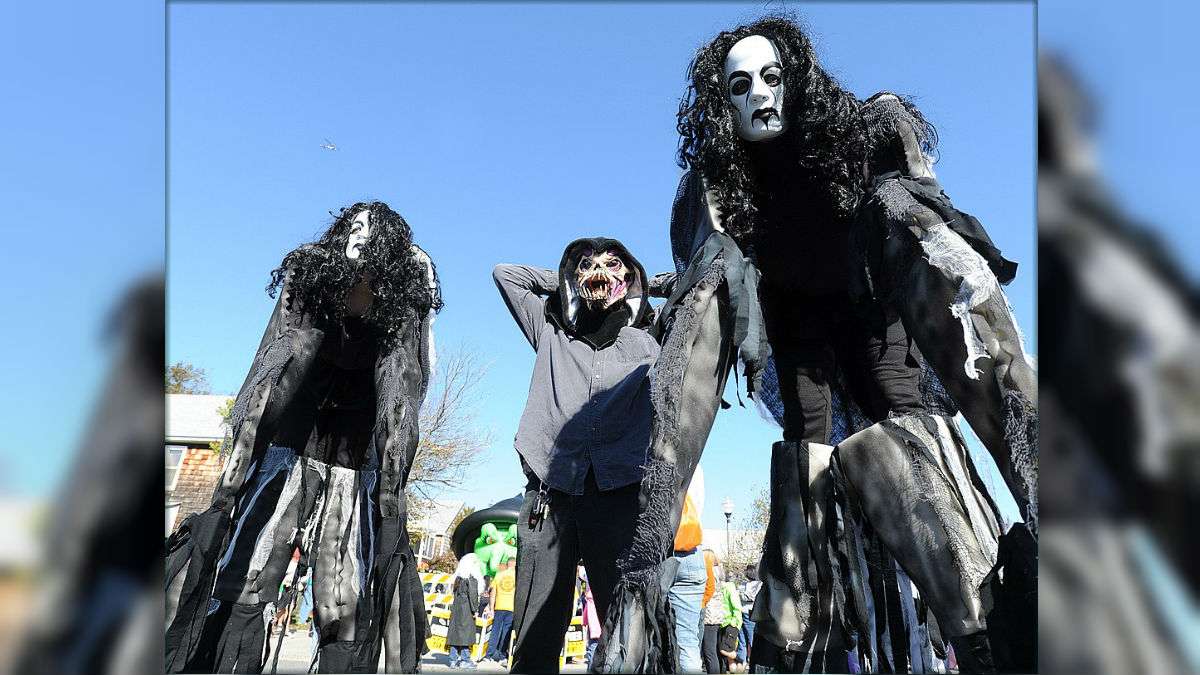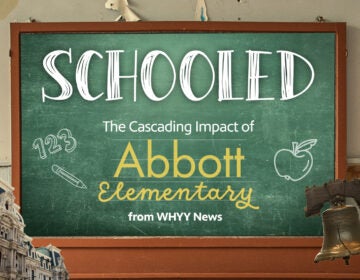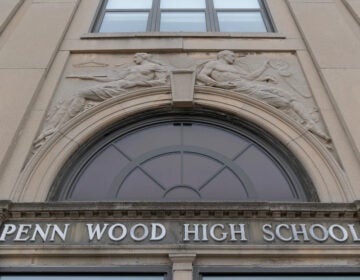Hundreds of Philly students displaced as Walter Palmer Charter shuts its high school
ListenTwo months into the school year, Walter Palmer Leadership Learning Partners Charter has shuttered its high school — displacing the 286 students who attended the Tacony campus in what the school’s founder called a “human tragedy.”
The scene on Harbison Avenue was the latest development in the charter’s years-long scuffle with the Philadelphia School District regarding enrollment caps. Students arrived for classes Monday morning only to be told to head home.
Despite the fact that Palmer signed a charter in 2005 limiting enrollment to 675 children, when the academic year started, Palmer served about 1,275 K-12 students at campuses in Northern Liberties and Tacony.
For years, when Palmer enrolled students in excess of that number, the district withheld payment, but the state Department of Education instead funnelled that money directly to the charter.
The district filed a lawsuit against Palmer charter and, in May, the Pennsylvania Supreme Court agreed with the district’s rationale.
Based on the court’s decision, the state Department of Education has discontinued payment to Palmer for students above the 675 cap.
Palmer disputes the district’s and state’s interpretation of the ruling. In late September, the school admitted that it didn’t have the funds sufficient to operate through the rest of the year.
Last week, Palmer held a lottery to whittle 250 students out of its elementary school. Between this and shuttering the high school, Walter Palmer says his schools have made significant efforts to keep enrollment within the agreed-to cap.
In a phone interview Monday, Palmer compared the downsizing of his elementary school to a scene on a “slave ship” where “names were picked out of a hat.”
“It was very painful,” he said, painting the action in brutal terms, where, “This one lives; this one dies.”
Palmer said his team has been helping the parents of displaced children to find “quality school-choice options” for their children including in private, parochial, and other charter schools.
As with all residents of Philadelphia, displaced children can register with their neighborhood district-run school at any time during the year.
Many charters do not enroll students after classes begin. The district had previously said it would ask charters that it deems to be high-performing to accept Palmer’s students.
District spokesman Fernando Gallard said no specific agreements had been reached, but noted that the charter community “is aware of Palmer’s situation.”
Palmer is specifically encouraging parents to send students to West Philadelphia High School, where he believes the school’s vacancies would allow it to accept all the displaced students.
Gallard could not immediately confirm how many students West Philadelphia could accept, but stressed that the district’s position was that it would “help students find the school where they would best fit in.” The only district school to which Palmer students can not transfer is Northeast High, where enrollment is at capacity.
Palmer charter has scheduled a 6 p.m. parents meeting Monday night at its high school campus at 5552 Harbison Avenue to discuss students’ educational options.
Revocation
In April, the district announced its intention to revoke Palmer’s charter, releasing a six-page memo citing problems including poor academic performance, fiscal insolvency and failure of its associated foundation to maintain its nonprofit status.
The district also says Palmer has fraudulently charged the district for students that did not exist.
A hearing in the charter revocation case was held Monday. Hearings are expected to continue until December.
Palmer’s state standardized test scores went up between 2007 and 2011, but fell sharply in 2012 after the Department of Education instituted tougher regulations in the wake of a statewide audit of adult cheating.
Palmer was one of four area charter schools investigated based on a highly improbability of wrong-to-right erasures in test booklets. That investigation there was inconclusive. The state has not clarified whether the probe at Palmer has been closed.
Palmer’s most recent test scores have contributed to its low 39.7 score on the state School Performance Profile. The District average is 57.5, and the charter average is 66.
In an interview in April, Palmer dismissed the consequences of school’s poor academic performance.
“The whole ‘No Child Left Behind’ was specious in itself and was unrealistic,” he said. Palmer argues that his charter enrolls a larger share of students who are thought difficult to educate compared with many other higher-performing charters.
“I am not a fan of high-stakes mandated testing,” he said. “No one test fits all and that is not the measurement of intelligence.”
At an School Reform Commission meeting held in June, Palmer received a slew of vocal support, including from SRC commissioner Farah Jimenez, Councilman Curtis Jones, Councilwoman Jannie Blackwell and state Rep. Curtis Thomas.
Each praised Palmer’s ability to create a welcoming environment where students and families feel safe.
SRC chairman Bill Green has said that 85 percent of Palmer charter’s students would be better off academically at their district-run neighborhood schools.
“The neighborhood schools are better,” said Green at the June SRC meeting.
Palmer supporters in the crowd that night vigorously disputed that notion.
WHYY is your source for fact-based, in-depth journalism and information. As a nonprofit organization, we rely on financial support from readers like you. Please give today.






















